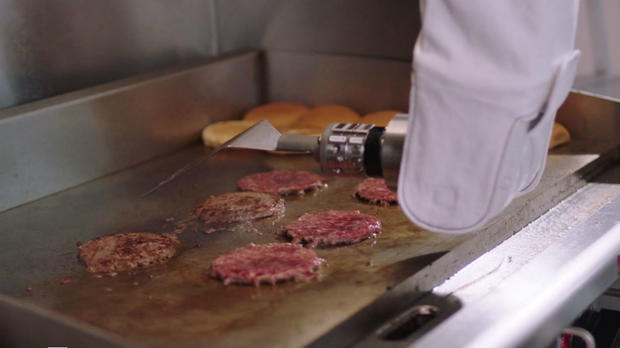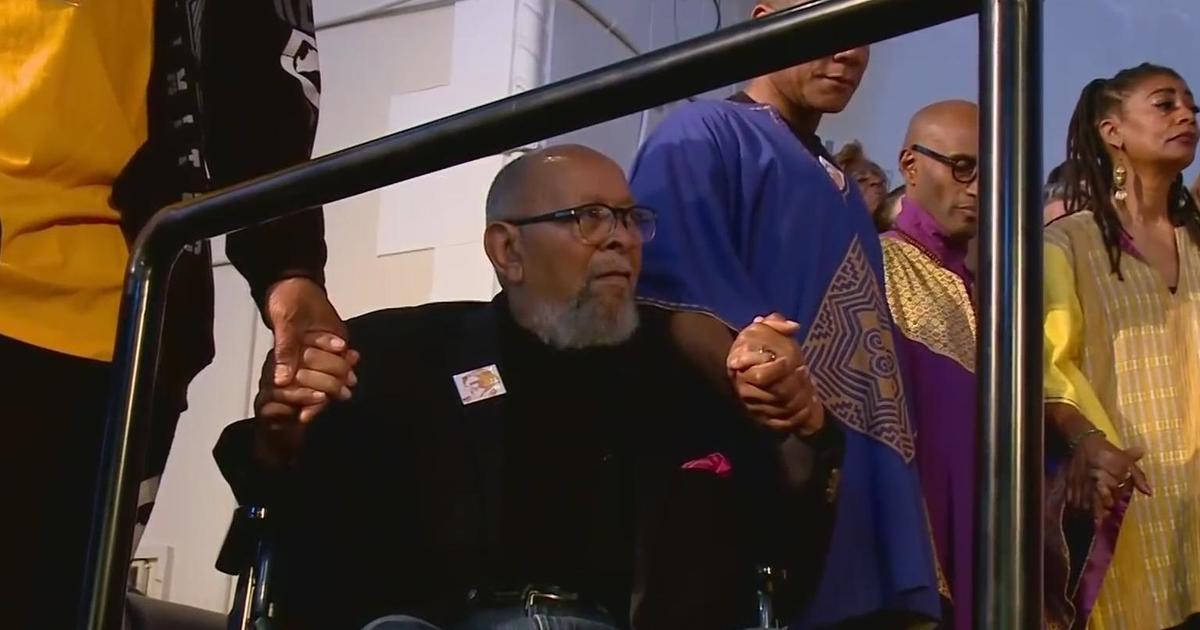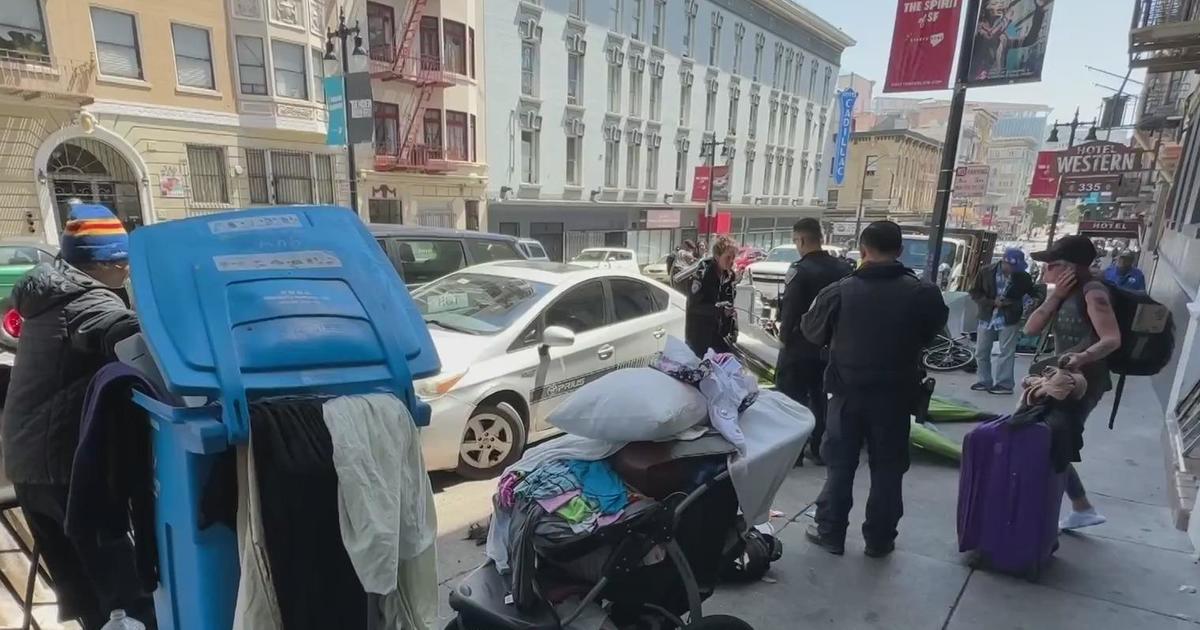Artificial Intelligence Revolution Will Make Many Jobs Obsolete
SAN FRANCISCO (KPIX 5) -- From personal digital assistants to self-driving cars, artificial intelligence is quickly gaining ground with the technology promising increased productivity, efficiency and safety.
Proponents believe AI will allow humans more time to be creative. But others caution that a device near you may end up doing your job.
The movies are full of scary robots. From the Discovery One's sentient computer HAL 9000 in "2001: A Space Odyssey" to the humanoid robot Ava in "Ex-Machina," artificial intelligence regularly goes haywire, running amok and often leading to the downfall of any human standing in its way.
But that's just science fiction, right? As it turns out, not for everybody.
"This really is the scariest problem for me," declared tech titan Elon Musk.
Musk has been sounding the alarm about unregulated artificial intelligence as related to humanity's future.
"AI is a fundamental risk to the existence of human civilization," Musk warned when he recently spoke at the bipartisan National Governor's Association in Rhode Island.
Not everyone agrees that AI will terminate the human race. But what about human jobs?
Within 40 years, a White House report found that AI will transform jobs by killing some and creating others. Without a doubt, according to experts, AI will disrupt the current livelihoods of millions of Americans.
"These technologies are going to affect everyone" explained Michael Chiu, partner at San Francisco think tank McKinsey Global Institute. He and his team wrote an incisive report that details where machines are likely to replace humans and where they can't; at least not yet.
He says no one is immune, not even the boss.
"Maybe 25 to 30 percent of even what a CEO does potentially could be automated," said Chiu.
Generally speaking, any job that entails predictable physical activity, drudgery or repetitive task is in danger.
KPIX 5 recently saw how at the recent Tech Crunch Disrupt held in San Francisco.
On display, a variety of AI-driven machines and software that were ready to rumble.
There was a gardening bot called Tertill that finds and destroys only weeds.
"Weeding is a task that nobody likes to do," explained Franklin Robotics CEO Rory MacKean.
There was also an AI-driven kitchen assistant that cooks burgers to perfection and to order. It's called Flippy. The assistant handles raw meat safely.
Miso Robotics co-founder and CEO David Zito believes Flippy is a collaborative partner who will let chefs have more time to come up with creative menus. One day, Flippy may work out of your home, helping the elderly fix their own meals, exactly to their nutritional needs.
The device does a job where there is high turnover in staff and it does the job well.
"It will do 150 burgers an hour, but we believe over time it will get up to 300 burgers an hour," said Zito.
KPIX 5 also saw an AI software driven investment robot that's powered by IBM's legendary Watson.
"We're analyzing over 6,000 U.S. publically traded companies and we're processing over 1 million news articles a day. And this is more than an army of research analysts at the largest investment banks can do," said Equbot COO Art Amador.
On Tech Crunch's stage, AI expert Sebastian Thrun spoke to an overflow crowd about how artificial intelligence will also enter the medical realm, providing diagnoses superior to those given by human doctors.
Thrun explained how his Stanford students trained AI software to find dangerous skin cancers as accurately, perhaps more accurately, than the best board-certified dermatologists
Even highly paid jobs like a physician or a lawyer have some repetitive duties that AI can cover easily and effectively.
"Eventually, you'll find machines that are going to pick up on those patterns and do pretty much as good or even better," explained Thrun.
The biggest AI disrupter promises to be in cars. Self-driving vehicles are making extraordinary progress. Using complex deep-learning software and thousands of hours of practice on simulators, self-driving vehicles are learning how to avoid hazards.
They are not being programmed to avoid hazards; rather, they are learning on their own to avoid hazards, just like a human driver.
Another way to look at their progress: the response to an unforeseen hazard for human drivers may become simply a learned reflex for the self-driving vehicle, so the cars will respond to a hazard like they would a repetitive task.
"Human drivers are going away in the long run", explained futurist Paul Saffo.
The predicted eventual dominance of artificial intelligence begs the question: What jobs are safe?
"I don't know about you, but many times when I get a call center, that's automated. I say "representative, representative. Get me a human out here," laughed UC Berkeley Professor Ken Goldberg.
Goldberg teaches robotics and automation at the university's Laboratory for Automation Science and Engineering or AUTOLAB.
He says the human touch is key.
"Any job that involves any interpersonal relationship is going to continue and is going to be increasingly important," explained Professor Goldberg.
These jobs include registered nurses, teachers and team managers.
Also protected are occupations that involve creative work expertise such as coders, personal trainers and hair dressers. Goldberg explains at this point, robots can't perform fine motor skills.
"I think humans have many good years left," said Goldberg with a laugh.
Artificial intelligence will also create new well-paying jobs. Self-driving car companies are already eagerly seeking engineering talent.
But according to Bay area expert Professor Roger Noll, there's a problem.
"Those are all high education, high tech jobs," said Professor Noll.
Noll is a Professor Emeritus of Economics at Stanford University. He cautioned how the jobs created by AI won't match those destroyed, leading to challenges for the working class.
"The consequence of that is worsening income distribution," explained Noll.
One approach is to retrain the workforce.
Professor Thrun is the founder of Udacity. At Tech Crunch's Disrupt, he announced a new Udacity introductory program to Self-Driving Cars.
Thrun, who founded Google's self-driving car team, said he realized how Udacity's Self-driving Engineer nanodegree program had many prerequisites, and that is was built for software engineers. So he decided to launch an introductory program for those who don't have that kind of experience.
In addition, Thrun announced that Udacity is partnering with Lyft and that the ride-share company will fund 400 scholarships to the introductory class. The hope is that the scholarships will promote diversity and provide economic incentives for students who might not be able to otherwise access this developing area of AI-related employment.
Military veteran Frederick Lough took the class and told KPIX he was glad that he did.
"It's a lot of work. It's a lot of work to come in with very little programming experience," explained Lough.
However, Noll believes the effort has go further and deeper with a massive investment by federal authorities for lesser skilled Americans.
"If we don't we'll have a growing displaced working class that is angry and unhappy," cautioned Noll.




